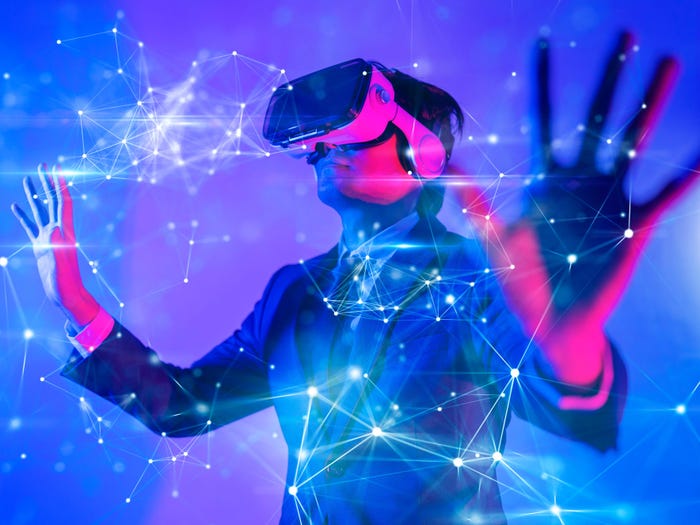Exploring “the future of technology”: What is the metaverse?
Courtesy of businessinsider.com
In the metaverse, people would be able to live their lives digitally through the use of augmented or virtual reality technology.
Defined by the Oxford dictionary as “(of a film, work of literature, art, etc.) showing awareness of itself or its genre,” the word “meta” has become ubiquitous in the technology world when attached to the suffix, “verse.” To the tech giants, a self-aware and self-contained technological world, known as the “metaverse,” is the future. According to The New York Times, Facebook, in particular, has not only poured millions of dollars into the development of the metaverse, but also changed the company name to “Meta.” The company seeks to build a digitized reality to engage the entire world. Even so, to the layman, the term sounds too abstract and lacks context or a proper definition.
However, the metaverse is not necessarily a dystopian Silicon Valley vision; it has already entangled itself with our daily lives. Roblox, cryptocurrency, and virtual reality are all touched by the concept of the metaverse. With the avatars, digital transactions, and virtual experiences, the metaverse, as we know it, appears somewhat familiar. The vision that Silicon Valley sees is simply grander and more all-consuming in its immersive virtual experiences that distort reality into a picture of surreal escapism with avatars.
In such a metaverse, people can live their lives digitally; they can work, play, communicate, and fight with others, just as they would do in real life. The main difference would be the digital component of the metaverse, most likely using some form of augmented or virtual reality, as explained by TIME. However, that abstract world would likely feel just as real because of the emotional response elicited from the realistic digital interactions between users and the variety of ways to interact with the digital environment.
Given the intangibility of the sizable concept, it ignited a debate about its efficacy and societal impact. Most tech companies praise the avante-garde idea for its potential to revolutionize the concept of societal interaction. In such a case, the metaverse could grant those unable to fully participate in society the chance to immerse themselves in a new way and experience life differently. They may find themselves creating virtual property, exploring, working, or talking to other avatars. On the other hand, it could also give people a falsified sense of reality and worsen their mental health as a result of the extreme immersion in the virtual world. After nearly two years of constant screen time and an analysis of its harmful nature, increasing time in a digital environment could only exacerbate the issue. In addition, according to TIME, the metaverse could manipulate the behavior of individuals while extracting data, exacerbating the lack of data rights emphasized by a growing number of politicians.
The metaverse is already shaking the world and will continue to do so. However, as any new concept or technology is, the metaverse should be regarded with caution because of the damage it could cause to mental health and its ability to extract significant amounts of unauthorized data. Nevertheless, with its potential to change the world’s perception of reality as well as how we interact with society and online, it could certainly become as common and indispensable as the Internet. The world will simply have to wait and see.



jah • Feb 15, 2022 at 10:20 am
I like this
Kenss Bigs • Jan 22, 2022 at 8:51 pm
great post. It is true that when it comes to backlinks, we must be quite cautious, particularly with long-term blogs.kenssbigs is Hiii guess I am a kenss bigs! you are Injoy this blogs? some talk me. you want to follow me. Social media . this is connected me. hurry up!
This blogs is the best way. Your choices: social media, knowledging, earn money,blogging,scam/legit,I’d …kenssbigs